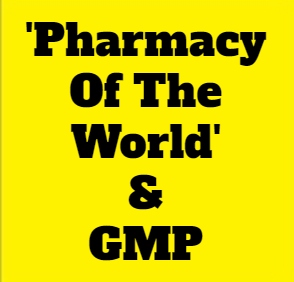

By A Special Correspondent
First publised on 2023-08-12 02:00:55
Centre's recent move to enforce adherence to World Health Organization (WHO)-GMP standards within the pharmaceutical sector marks a pivotal moment in the nation's quest to restore its standing as a trustworthy source of cost-effective generics. In a matter of months, a series of grave incidents has shaken the reputation of India's pharmaceutical prowess, urging the industry to urgently prioritize regulatory reform and quality assurance.
Recent global medical alerts issued by the WHO concerning Indian cough syrups and products underscore the critical need to rectify existing vulnerabilities. A series of alarming incidents across several nations has been linked to alleged contamination in Indian-manufactured syrups, eye-drops, and eye ointments. Shockingly, the deaths of children in Gambia and Uzbekistan, as well as cases in the United States and Cameroon, have been attributed to these products. Despite these concerns, Indian drug regulatory authorities have often deferred addressing core issues, relying instead on piecemeal solutions or evading complicity.
The government's directive mandates medium, small, and micro enterprises (MSMEs) engaged in pharmaceutical production to adopt good manufacturing practices (GMP) within the next 6 to 12 months. Larger companies with a turnover exceeding Rs 250 crore are required to implement these changes within six months from August 1, while those with lower turnovers have a year to do so. This strategic alignment with global WHO standards is aimed at solidifying India's position as the 'pharmacy of the world', as aptly stated by Union Health Minister Mansukh Mandaviya.
To reinforce the gravity of compliance, Minister Mandaviya has cautioned manufacturers that failure to meet these standards could lead to the revocation of licenses and substantial financial penalties. The government's commitment extends beyond mere policy changes; an intensified program of risk-based inspections will be conducted across the country to ensure that pharmaceutical companies adhere to the current GMP and quality management regulations.
Nevertheless, rectifying these challenges is no small feat. Presently, only 2,000 out of 10,500 drug manufacturing units in the country meet WHO-GMP certified global standards. Studies have exposed the unsettling reality that major pharmaceutical companies often outsource production to MSME outfits, where cost considerations often take precedence over quality. Moreover, understaffed and resource-limited state regulatory bodies struggle to oversee the operations of these firms, especially those entailing dubious operators.
The implementation of GMP has been a persistent weak point for India's pharmaceutical industry since its mandatory introduction in 2005. The government's attempts to nudge the industry towards compliance over the past two decades have yielded limited success. To genuinely elevate India's pharmaceutical reputation to global standards, a mere rule change is insufficient. The transformation requires establishing a scientific, efficient, robust, and transparent regulatory system, which in turn necessitates strong political will.











